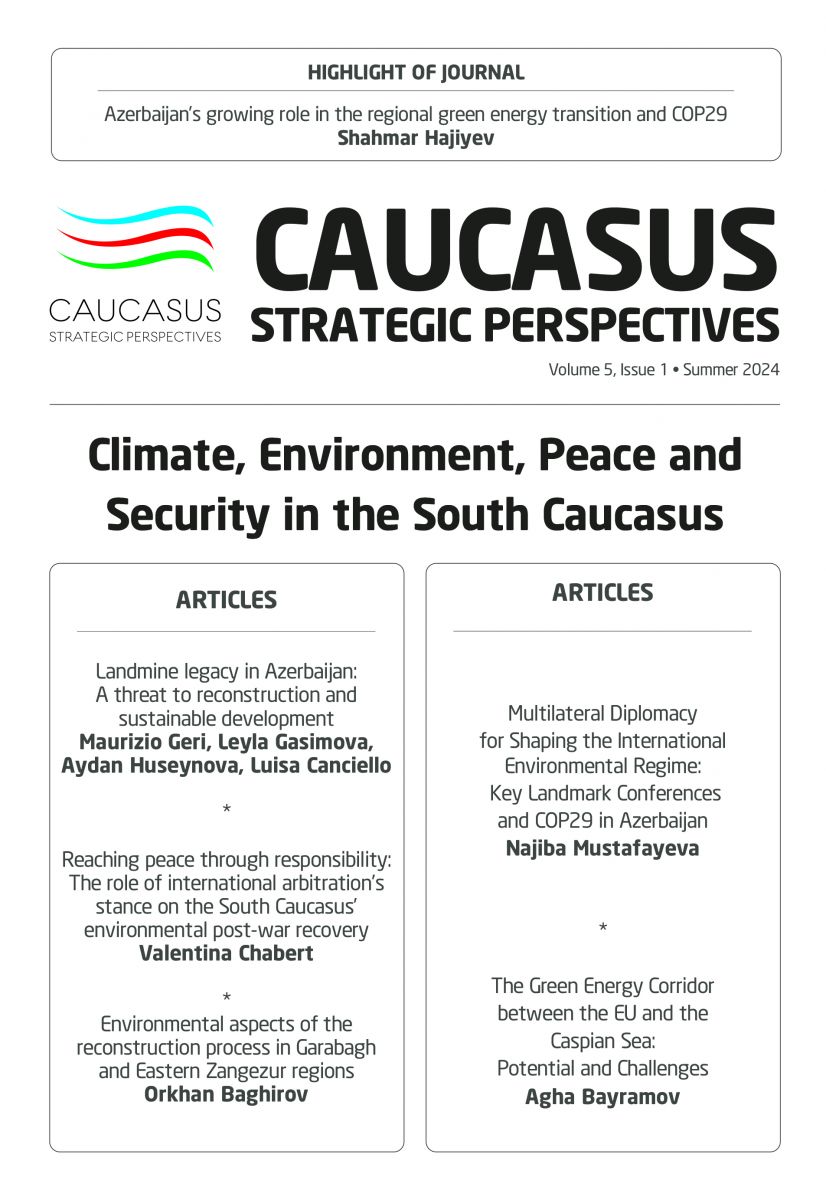Reaching peace through responsibility: The role of international arbitration’s stance on the South Caucasus’ environmental post-war recovery
In light of multiple instances of environmental damage committed by Armenia and foreign corporations during the three decades of occupation of Azerbaijani territory, the present article aims at investigating the necessity of bolstering peace negotiations through the recognition of Armenia’s legal responsibility for ecosystem harm in the territories of Azerbaijan. To this purpose, the role of international arbitration in promoting Azerbaijan’s environmental post-war recovery is investigated. Specifically, the article explores the current framework of international humanitarian law providing for the protection of the environment during armed conflict, as well as the relationship between the law of occupation and natural resource exploitation. Against this background, the ultimate objective of this article lies in the investigation of Azerbaijan’s requests for inter-state arbitration pursuant to the Bern Convention and the Energy Charter Treaty. This is considered to be potentially the most successful option for Azerbaijan to get compensation for environmentally harmful acts committed by Armenia. Additionally, this article considers that arbitration emerges as the best legal solution for Azerbaijan to seek redress for environmental wrongdoing, as international law is poorly equipped to tackle the issue of corporate actors’ responsibility. Indeed, obtaining compensation by directly suing corporate actors that have committed environmental damage in occupied territories under Armenia’s jurisdiction before national tribunals appears to be extremely complicated.
Latest news
- 12/27/2024 Call for Submissions-Caucasus Strategic Perspectives, Volume 6, Issue 1, Summer 2025 668 views
Popular articles
- 07/18/2022 The Russia–Ukraine War: Perspective of Azerbaijan 4325 views
- 10/14/2020 The Non-Aligned Movement: In Pursuit of Validity and Relevance in the Contemporary Global Order 3307 views
- 10/14/2020 Vicious Circle of the South Caucasus: Intra-Regional Conflicts and Geopolitical Heterogeneity 3291 views
- 10/14/2020 Relevance of Non-Alignment for Azerbaijan’s Foreign and Security Policy 3020 views





